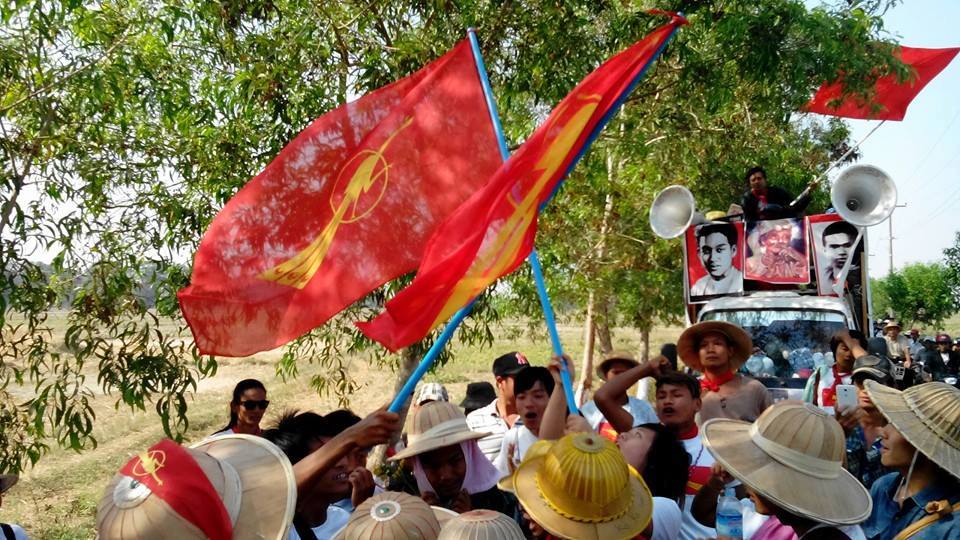A bill containing amendments to the National Education Law, in line with the 11 demands from student activists, was settled over the weekend during four-way talks at the Department of Higher Education in Rangoon.
The negotiations took place on 14 and 15 February, and were attended by representatives of the government and parliament, as well as student leaders from the Network for National Education Reform (NNER) and Committee for Democracy Education Movement (CDEM).
Dr. Thein Lwin, a leading representative of the NNER who were responsible for drafting the amendment bill, told DVB that the proposed law was ready to be put to parliament.
“The bill amending the National Education Law was finalised in the meeting at the Department of Higher Education,” he said, adding that the Ministry of Education will propose the legislation to parliament.
The Ministry of Education had previously put forward its own amendment bill, but this was later retracted.
In the previous round of four-way talks, the government agreed to the students’ demands for education reforms, including the decentralisation of decision-making power on education policies, and permission for the formation of student and teacher unions.
Dr Thein Lwin said that the student marches of recent weeks look set to continue. Groups of activists – demonstrating in favour of education reforms by marching to Rangoon from various parts of Burma in recent weeks – have expressed their desire to continue marching “in celebration”, as opposed to protest.
[related]
Deputy Education Minister Thant Shin told reporters at the end of Saturday’s four-way talks that students would be taking a risk if they continued their march to Rangoon after the government had compromised with the students by agreeing to their demands.
“The government has done its part. I would like to advise the students that Rangoon is deep water for them. If they venture into deep water, whether they can swim or not, there is a chance that they might drown under unfortunate circumstances,” said Thant Shin.
“If they would like to swim, I advise that they should stay in shallow water. This would also be convenient for the public – for the population in Rangoon.”
Ye Yint Kyaw, a spokesperson for the All Burma Federation of Student Unions who have been leading the rallies around the country, told DVB that the students viewed Thant Shin’s comments as a threat, saying: “We would like the government to wait and see if we can swim in deep water or not. The students will show what they can do.”
The chief column of students, marching from Mandalay to Rangoon, arrived in the town of Okpho in Pegu Division on Sunday evening. Pegu Division, or Bago, shares a border with Rangoon Division. Ye Yint Kyaw drew attention to the fact that authorities had erected barricades on the highway at the point of crossing from Pegu to Rangoon divisions.
The government issued a warning to students via the state-run MRTV channel on Friday evening, saying that in Rangoon Division: “Necessary measures aimed at ensuring security, the rule of law, and the peace and tranquillity of the community will be taken to prevent undesirable consequences from the entry of student boycotters.”
On Monday, the students continued their march from Pegu Division’s Okpho town to Minhla.



